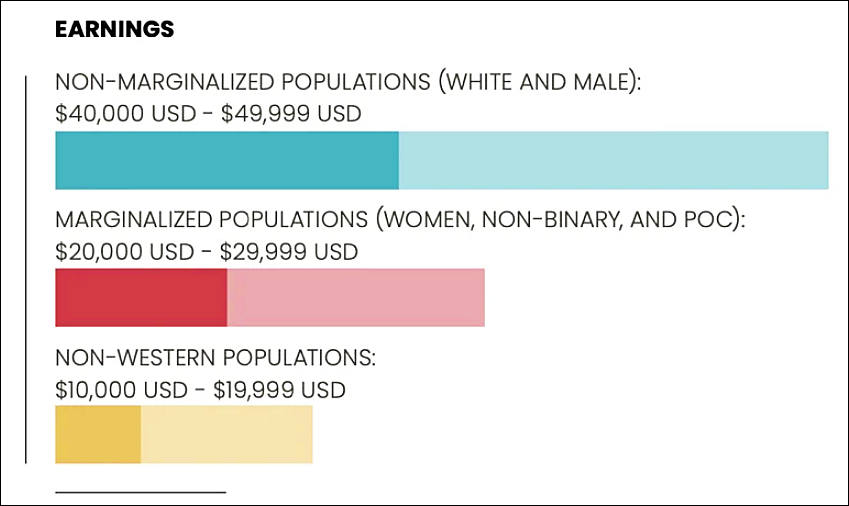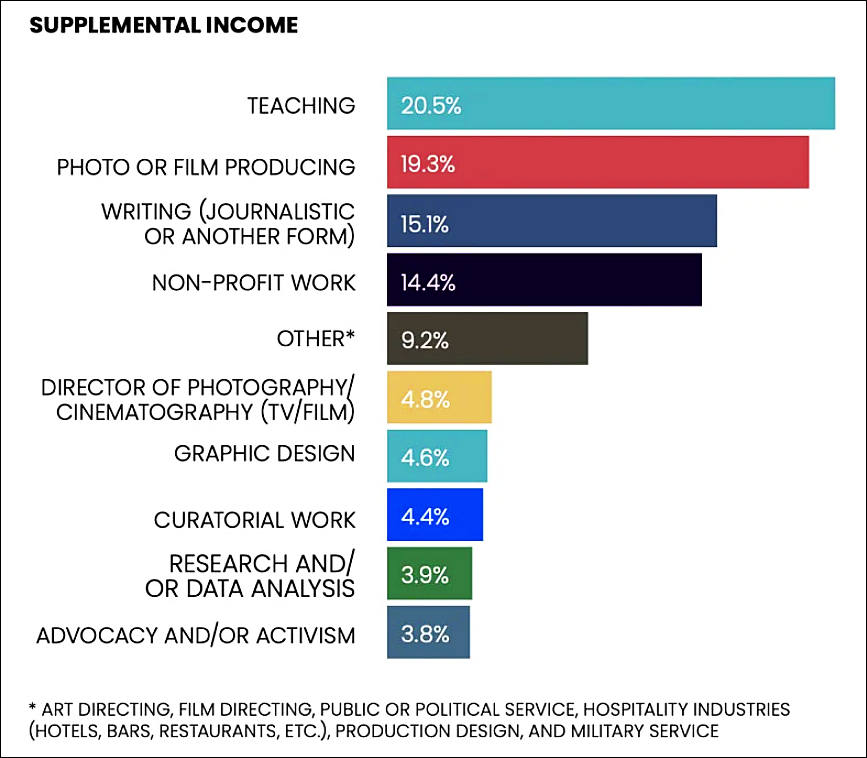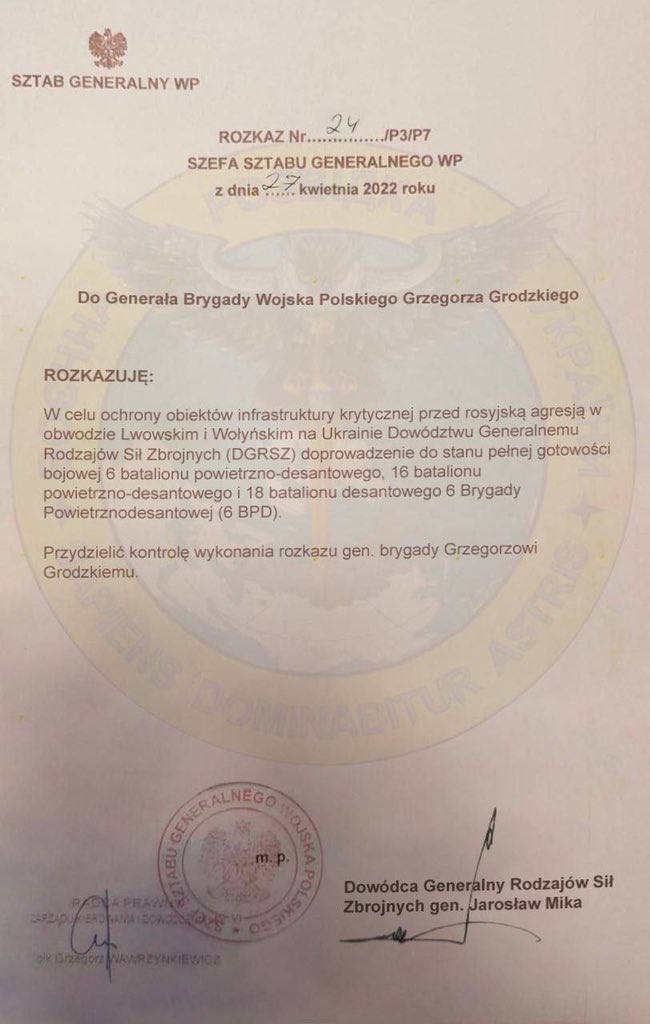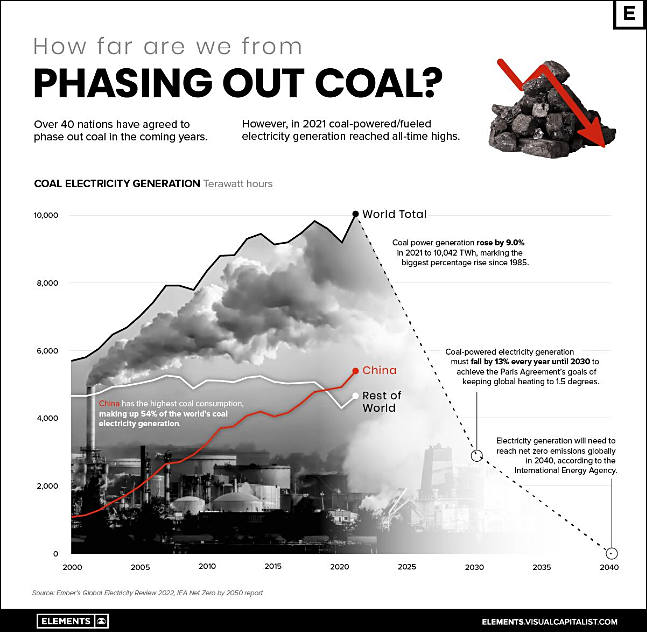
-
Follows0Replies0Views783Sigma's new headquarters
-
Remember, all this came from inflated lenses price.
-
-
Follows0Replies0Views897Photo jobs will make you poor
-
The State of Photography Report 2022 was carried out by Catchlight and the Knight Foundation and surveyed a total of 1,325 photographers across 87 countries. Most are form US.
Half of all respondents said they earned less than $40,000 net a year, while 30% earned less than $20,000. At the other end of the spectrum, around 15% of respondents take home in excess of $70,000 per year, while just 52 individuals (6% of the respondents) make more than $100,000 per year.
Similarly, photographers identifying as being from non-Western nations reported significantly lower earnings than their Western counterparts. Those identifying as being from a Western nation showed their median income at $40,000 – $50,000, and those who did not identify as being from a Western nation showed median income at $10,000 to $20,000.


https://www.catchlight.io/news/2022/5/2/the-state-of-photography-2022-report
-
-
Follows0Replies4Views2.1KEnergy: More issues in EU
-
Europeans continue to suffer from the consequences of anti-Russian sanctions - in France, utility rates have increased by 483%, and Germans are advised to stock up on warm blankets to survive the winter
Prices for everything are rising in Europe, and France is no exception. Considering that inflation in the country is one of the lowest in Europe, the French have to save on absolutely everything. For one owner of an apartment of 50 sq. m bill for light is 2000 euros.
In neighboring Germany, the picture looks no less depressing. Record inflation for 40 years, as well as the rapid rise in prices for products (20% in just a month!) are pushing the country's government to take very unusual measures. As Handelsblatt writes, the German Interior Ministry offers the Germans to buy all the essential products now, especially to stock up on chocolate, tea and a blanket, because Germany cannot guarantee citizens that next winter it will be warm in their apartments. Also recently, pragmatic Germans were offered to collect rainwater to fill the toilet.
4 comments 5 comments Vitaliy_KiselevMay 2022Last reply - May 2022 by Vitaliy_Kiselev Subscribe to this blog
Subscribe to this blog
-
-
Follows1Replies11Views9.1KWar: Poland prepares to invade Ukraine, plans to expand Poland territory11 comments 12 comments Vitaliy_KiselevMay 2022Last reply - June 2022 by [Deleted User]
 Subscribe to this blog
Subscribe to this blog
-
-
Follows0Replies1Views1.5KWar: Finland - back to fascist roots
-
Iltalehti: Finland will announce its decision to join NATO on May 12
First, the president of the country will speak out in favor of joining the North Atlantic Alliance, and then the parliamentary parties will agree with his position, the publication clarifies.
Finnish President Sauli Niinistö will announce the decision to join NATO on 12 May. This is reported by the Finnish newspaper Iltalehti.
“The President of the Republic wants all parliamentary groups to know his public position on NATO at the same time. The date was set for May 12, when various parliamentary committees decided to discuss the report on foreign and security policy," the newspaper writes, citing sources.
According to the newspaper, Helsinki's decision to apply to join the North Atlantic Alliance will be made on May 12 in two stages: first, the President of Finland will speak out in support of joining NATO, and then the parliamentary parties will agree with his position. Prime Minister Sanna Marin will also approve a decision on this issue on May 12.
Earlier, Life wrote that Finland and Sweden would apply to NATO on May 16-20. According to Iltalehti, Finnish leader Sauli Niinistö is scheduled to visit Stockholm on May 17-18 at the invitation of King Carl XVI Gustaf.
1 comment 2 comments Vitaliy_KiselevMay 2022Last reply - May 2022 by endotoxic Subscribe to this blog
Subscribe to this blog
-
-
Follows0Replies2Views1.9KEnergy: Situation with coal consumption2 comments 3 comments Vitaliy_KiselevMay 2022Last reply - May 2022 by RoadsidePicnic
 Subscribe to this blog
Subscribe to this blog
-
-
Follows0Replies0Views777EU: Manufacturing can stop due energy shortages
-
The EU will be able to stock up on gas for the winter without supplies from Russia, only by turning off the industry - Der Spiegel
According to European scientists, in order to fill gas reservoirs by 63% by August 1, excluding gas supplies from Russia, it is necessary now and until the end of July to turn off gas from all metallurgical, chemical and cement plants in the EU. Gas-fired power plants will have to be completely shut down for the whole of July, according to Der Spiegel.
It is possible to reach the indicator of 80% filling of storage facilities by November 1, which is necessary for a comfortable wintering, only by cutting off the gas supply to industry for the whole of October.
Experts believe that without these measures, it will not be possible to stock up on fuel by the beginning of winter, despite Ursula von der Lein's statements about her readiness to replace Russian gas with supplies from other countries.
-
-
Follows0Replies0Views1.0KPoland: Life will be bad for normal people
-
An embargo on Russian coal in the European Union will ruin Polish farmers and millions of people in the country, writes Agnieszka Zielinska, a columnist for the Money.pl portal.
As noted in the article, the situation in Poland is deteriorating due to rising prices for fertilizers, gas and electricity. Coal has risen in price by one hundred percent in a year. People buy it for the future, fearing a shortage.
According to the journalist, the sanctions on the import of this energy carrier from Russia, planned for August, will deal a blow to enterprises and the poorest segments of the population. Small farmers and rural residents, including pensioners and citizens with the lowest incomes, will suffer from the decision of Brussels and Warsaw.
"It's not just about houses. In the agricultural sector, many greenhouses and chicken coops are still heated with coal. <…> It was cheaper and more affordable than gas. Now many farmers have big problems because they have no alternative. Switching to gas, which constantly rises in price, it is very risky for them," said Viktor Shmulevich, president of the National Council of Agricultural Chambers.
Russia supplied fuel to Poland, which was cheaper than local fuel and had a higher heat transfer. Zelinska recalled that in a few months it will end, and this will lead to an increase in energy poverty in the republic. According to the Institute for Structural Studies, the problem already affects about 4.6 million Poles, who live mainly in small towns and villages, the columnist concluded.
-
Howdy, Stranger!
It looks like you're new here. If you want to get involved, click one of these buttons!
Categories
- Topics List23,965
- Blog5,723
- General and News1,343
- Hacks and Patches1,151
- ↳ Top Settings33
- ↳ Beginners254
- ↳ Archives402
- ↳ Hacks News and Development56
- Cameras2,361
- ↳ Panasonic990
- ↳ Canon118
- ↳ Sony154
- ↳ Nikon96
- ↳ Pentax and Samsung70
- ↳ Olympus and Fujifilm99
- ↳ Compacts and Camcorders299
- ↳ Smartphones for video97
- ↳ Pro Video Cameras191
- ↳ BlackMagic and other raw cameras121
- Skill1,961
- ↳ Business and distribution66
- ↳ Preparation, scripts and legal38
- ↳ Art149
- ↳ Import, Convert, Exporting291
- ↳ Editors191
- ↳ Effects and stunts115
- ↳ Color grading197
- ↳ Sound and Music280
- ↳ Lighting96
- ↳ Software and storage tips267
- Gear5,414
- ↳ Filters, Adapters, Matte boxes344
- ↳ Lenses1,579
- ↳ Follow focus and gears93
- ↳ Sound498
- ↳ Lighting gear314
- ↳ Camera movement230
- ↳ Gimbals and copters302
- ↳ Rigs and related stuff272
- ↳ Power solutions83
- ↳ Monitors and viewfinders339
- ↳ Tripods and fluid heads139
- ↳ Storage286
- ↳ Computers and studio gear560
- ↳ VR and 3D248
- Showcase1,859
- Marketplace2,834
- Offtopic1,319






